Ovartaci

„Ovartaci - crazy, queer& lovable“
the development of an opera by one author and twelve composers
While on a lecture circuit in the autumn of 2015, the writer Tanja Langer visited the „Sammlung Prinzhorn“, a museum dedicated to historical artworks created by patients in mental hospitals as well as contemporary works created by people suffering from psychiatric disorders. There she found herself particularly drawn to the works of the Danish artist Ovartaci.
the development of an opera by one author and twelve composers
While on a lecture circuit in the autumn of 2015, the writer Tanja Langer visited the „Sammlung Prinzhorn“, a museum dedicated to historical artworks created by patients in mental hospitals as well as contemporary works created by people suffering from psychiatric disorders. There she found herself particularly drawn to the works of the Danish artist Ovartaci.
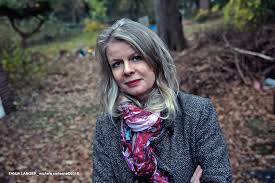
Tanja Langer was born in Wiesbaden in 1962 and has lived in Berlin since 1986.
She studied comparative literature in Munich, Paris and Berlin,
art history, philosophy and political science,
completed a basic training as a photographer
and showed 1990 at the studio stage of the FU Berlin with
"Othello" her first own production. She worked as a freelance director for
contemporary dramas at various theatres in Berlin.
Her play "Hagazussa" at the Weiten Theater in Berlin-Hellersdorf
was founded in 1993 by the "Deutscher Kinder- und Jugendtheatertreffen"
as one of the ten best German-language plays.
She wrote for the Tagesspiegel, WELT and others, and published stories and novels,
among others "Little story of a woman who couldn't be faithful",
"The day is bright, I write to you", as well as "The painter Munch".
In 2008 her libretto for the opera "Kleist" by Rainer Rubbert was premiered,
songs and other works for various composers followed.
She studied comparative literature in Munich, Paris and Berlin,
art history, philosophy and political science,
completed a basic training as a photographer
and showed 1990 at the studio stage of the FU Berlin with
"Othello" her first own production. She worked as a freelance director for
contemporary dramas at various theatres in Berlin.
Her play "Hagazussa" at the Weiten Theater in Berlin-Hellersdorf
was founded in 1993 by the "Deutscher Kinder- und Jugendtheatertreffen"
as one of the ten best German-language plays.
She wrote for the Tagesspiegel, WELT and others, and published stories and novels,
among others "Little story of a woman who couldn't be faithful",
"The day is bright, I write to you", as well as "The painter Munch".
In 2008 her libretto for the opera "Kleist" by Rainer Rubbert was premiered,
songs and other works for various composers followed.
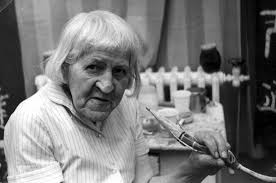
The Danish artist Ovartaci (1894-1985) left behind a large, idiosyncratic oeuvre
and spent most of his life in psychiatric care.
He wanted to be a woman and attempted to emasculate himself twice.
At the age of 63 she finally underwent gender reassignment surgery.
Being an "Ovartaci", as Louis Marcussen called himself,
which translates as "chief idiot", was his self-imposed role
as king of fools, like Peer Gynt.
Coming from a modest background, he grew up to become a decorator;
On a trip to Argentina, he experimented with hallucinogens
which triggered an after-effect of psychosis. He was obsessed with the idea
that castration would exorcise his fears of his own aggressive instincts.
He made figures out of papier-mâché, like the horsewoman,
in whose mouth he would put sweets,
closing her long-lashed eyelids at bedtime and kissing her goodnight.
He learned Chinese, which he considered to be the upcoming world language,
he also built flying objects, drew and painted unique figures.
Already during his lifetime he received worldwide recognition for his work.
and spent most of his life in psychiatric care.
He wanted to be a woman and attempted to emasculate himself twice.
At the age of 63 she finally underwent gender reassignment surgery.
Being an "Ovartaci", as Louis Marcussen called himself,
which translates as "chief idiot", was his self-imposed role
as king of fools, like Peer Gynt.
Coming from a modest background, he grew up to become a decorator;
On a trip to Argentina, he experimented with hallucinogens
which triggered an after-effect of psychosis. He was obsessed with the idea
that castration would exorcise his fears of his own aggressive instincts.
He made figures out of papier-mâché, like the horsewoman,
in whose mouth he would put sweets,
closing her long-lashed eyelids at bedtime and kissing her goodnight.
He learned Chinese, which he considered to be the upcoming world language,
he also built flying objects, drew and painted unique figures.
Already during his lifetime he received worldwide recognition for his work.
April to September 2016: This coming together, the ensuing emerging artistic confrontation with different aspects of Ovartaci‘s personality and the themes of his life and work - including his outsider status as an intersexual, his schizophrenic illness, his attempts to escape reality through his ingenious artistic creations of surreal images - all found their first manifestation in four "Ovartaci Preconcerts" in 2016. Each of the concerts, which took place in different locations in Berlin, opened with a presentation introducing the theme of the concert, read by an expert in the topic. Theme-related songs by the librettist were also included.
Concert 0 - The concert "Ovartaci - about the idea of an opera" -at Villa Oppenheim in the museum quarter of the Charlottenburg Palace in Berlin Charlottenburg, which is home to a unique collection of Berlin artists, opened with a lecture by librettist Tanja Langer on the project, and featured music by Rainer Rubbert, Stefan Lienenkämper, Charlotte Seither and Samuel Tramin.
Concert I - "What is Outsider Art? - Is art outsiderism?" also took place at Villa Oppenheim, located in the immediate vicinity of the Scharf-Gerstenberg Museum, home to works by surrealist artists as well as so-called outsiders. It opened with a lecture by psychiatrist Dr. Wolfram Voigtländer from the Verein für Außenseiterkunst, and featured music by Gabriel Iranyi, Eres Holz and Susanne Stelzenbach.
Concert II - "The numerous transformations of the Ovartaci" in the Paul-Gerhardt-Kirche in Berlin-Schöneberg opened with a lecture by Dr. Thomas Röske, head of the Prinzhorn Collection of Artworks by the mentally ill in Heidelberg. It featured music by Helmut Zapf, Martin Daske,
Samuel Tramin and Laurie Schwarz.
Concert III - "The unfiltered access to the unconscious" or "Another way to see the world“ in the historic building of the Old Psychiatric Clinic of the Charité on the Charité Campus in Berlin-Mitte, opened with a lecture by psychiatrist Dr. Bernd Haslinger from the Charité, in Berlin, followed by an Introduction to the life and work of Ovartaci by Tanja Langer. It featured music by Mayako Kubo, Peter Köszeghy and Thomas Hennig.
January 2017: While the music first performed in the above -mentioned series of concerts was still only indirectly related to Ovartaci as a person, dealing more with the future thematic fields of the chamber music opera, the completed scenes of the opera were first performed/made their debut in January 2017 in a version for a small ensemble during two concerts at the workshop of the Staatsoper Unter den Linden at the Schillertheater, Berlin. A noticeable feature of these concerts were songs relating to psychiatry and art , written by the librettist Tanja Langer and entitled "The Criminals of Mrs. A."
Erste Ovartaci - Szenen in der Staatsoper Berlin, Schillertheater-Werkstatt
„Die Kriminellen der Frau A. / Auf dem Weg zu Ovartaci“ am 11. und 12. Januar 2017 mit:
Ovartaci als Heizer im Frachtdampfer (Rainer Rubbert)
Get it over - Smoking with the Chinese Manifestation (Martin Daske)
Puma, Blume, Schmetterling / 64 times i was born (Mayako Kubo)
Wanting to fly (Charlotte Seither)
Heiß ist das Blut, kalt ist der Stahl (Helmut Zapf)
Liebe (Susanne Stelzenbach)
Sleep well, my love (Stefan Lienenkämper)
May 2017, Aarhus/Denmark; August 2017, Holstebro/Denmark: With this slightly modified program, the librettist and the composers travelled at the invitation of both the Ovartaci Museum and the University VIA to Aarhus / Denmark on the occasion of the Celebrations of the European Capital of Culture, sponsored by the Federal Foreign Office, to attend two concerts on May 10 and 11, the first one in the Festival hall of the Psychiatic hospital in Aarhus where Ovartaci spent the second half of his life, and the second one at the VIA University in Aarhus. As a result of these successful concerts, the production was invited to Holstebro/Denmark in August 2017 as a festival contribution while Tanja Langer was invited to Aarhus to read from her novel "The painter Munch".
Concert I - "What is Outsider Art? - Is art outsiderism?" also took place at Villa Oppenheim, located in the immediate vicinity of the Scharf-Gerstenberg Museum, home to works by surrealist artists as well as so-called outsiders. It opened with a lecture by psychiatrist Dr. Wolfram Voigtländer from the Verein für Außenseiterkunst, and featured music by Gabriel Iranyi, Eres Holz and Susanne Stelzenbach.
Concert II - "The numerous transformations of the Ovartaci" in the Paul-Gerhardt-Kirche in Berlin-Schöneberg opened with a lecture by Dr. Thomas Röske, head of the Prinzhorn Collection of Artworks by the mentally ill in Heidelberg. It featured music by Helmut Zapf, Martin Daske,
Samuel Tramin and Laurie Schwarz.
Concert III - "The unfiltered access to the unconscious" or "Another way to see the world“ in the historic building of the Old Psychiatric Clinic of the Charité on the Charité Campus in Berlin-Mitte, opened with a lecture by psychiatrist Dr. Bernd Haslinger from the Charité, in Berlin, followed by an Introduction to the life and work of Ovartaci by Tanja Langer. It featured music by Mayako Kubo, Peter Köszeghy and Thomas Hennig.
January 2017: While the music first performed in the above -mentioned series of concerts was still only indirectly related to Ovartaci as a person, dealing more with the future thematic fields of the chamber music opera, the completed scenes of the opera were first performed/made their debut in January 2017 in a version for a small ensemble during two concerts at the workshop of the Staatsoper Unter den Linden at the Schillertheater, Berlin. A noticeable feature of these concerts were songs relating to psychiatry and art , written by the librettist Tanja Langer and entitled "The Criminals of Mrs. A."
Erste Ovartaci - Szenen in der Staatsoper Berlin, Schillertheater-Werkstatt
„Die Kriminellen der Frau A. / Auf dem Weg zu Ovartaci“ am 11. und 12. Januar 2017 mit:
Ovartaci als Heizer im Frachtdampfer (Rainer Rubbert)
Get it over - Smoking with the Chinese Manifestation (Martin Daske)
Puma, Blume, Schmetterling / 64 times i was born (Mayako Kubo)
Wanting to fly (Charlotte Seither)
Heiß ist das Blut, kalt ist der Stahl (Helmut Zapf)
Liebe (Susanne Stelzenbach)
Sleep well, my love (Stefan Lienenkämper)
May 2017, Aarhus/Denmark; August 2017, Holstebro/Denmark: With this slightly modified program, the librettist and the composers travelled at the invitation of both the Ovartaci Museum and the University VIA to Aarhus / Denmark on the occasion of the Celebrations of the European Capital of Culture, sponsored by the Federal Foreign Office, to attend two concerts on May 10 and 11, the first one in the Festival hall of the Psychiatic hospital in Aarhus where Ovartaci spent the second half of his life, and the second one at the VIA University in Aarhus. As a result of these successful concerts, the production was invited to Holstebro/Denmark in August 2017 as a festival contribution while Tanja Langer was invited to Aarhus to read from her novel "The painter Munch".
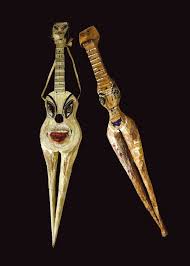
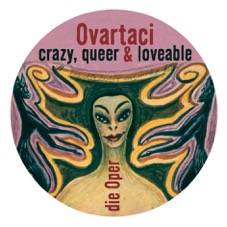
A plan was soon created to make the life of Ovartaci the subject of an opera in cooperation with the composers of the Atonale e.V., an association devoted to the promotion of atonal music and presided over by Schneuing and Rubbert. The idea was to develop a musical play with the music of twelve contemporary composers, each of whom, while sharing the same aesthetics, would nevertheless be writing in their own particular styles, thus creating a musical equivalent to reflect the diversity and richness of colour of Ovartaci's art and design.
The Atonale e.V. , a society founded in 2009
with the aim of promoting the creation of contemporary music,
consists of twelve twelve award-winning
Berlin composers of New Music:
Mayako Kubo, Laurie Schwartz, Susanne Stelzenbach,
Martin Daske, Thomas Hennig, Eres Holz, Gabriel Iranyi,
Stefan Lienenkämper, Rainer Rubbert,
Charlotte Seither, Samuel Tramin and Helmut Zapf.
Since then, they have joined forces,
driven by the conviction that professionalism
beyond academic institutions is the only way to foster innovation.
with the aim of promoting the creation of contemporary music,
consists of twelve twelve award-winning
Berlin composers of New Music:
Mayako Kubo, Laurie Schwartz, Susanne Stelzenbach,
Martin Daske, Thomas Hennig, Eres Holz, Gabriel Iranyi,
Stefan Lienenkämper, Rainer Rubbert,
Charlotte Seither, Samuel Tramin and Helmut Zapf.
Since then, they have joined forces,
driven by the conviction that professionalism
beyond academic institutions is the only way to foster innovation.
During a subsequent trip to Denmark, the writer seized the opportunity to visit Aarhus, the town where Ovartaci spent his creative life and where a museum is dedicated to his memory. During that visit, she later wrote, she became even more emotionally involved in Overtaci’s life story and decided to share it with her longtime colleagues, musicians Rainer Rubbert and Martin Schneuing, providing them with an extensive catalogue of Ovartaci’s life and works.
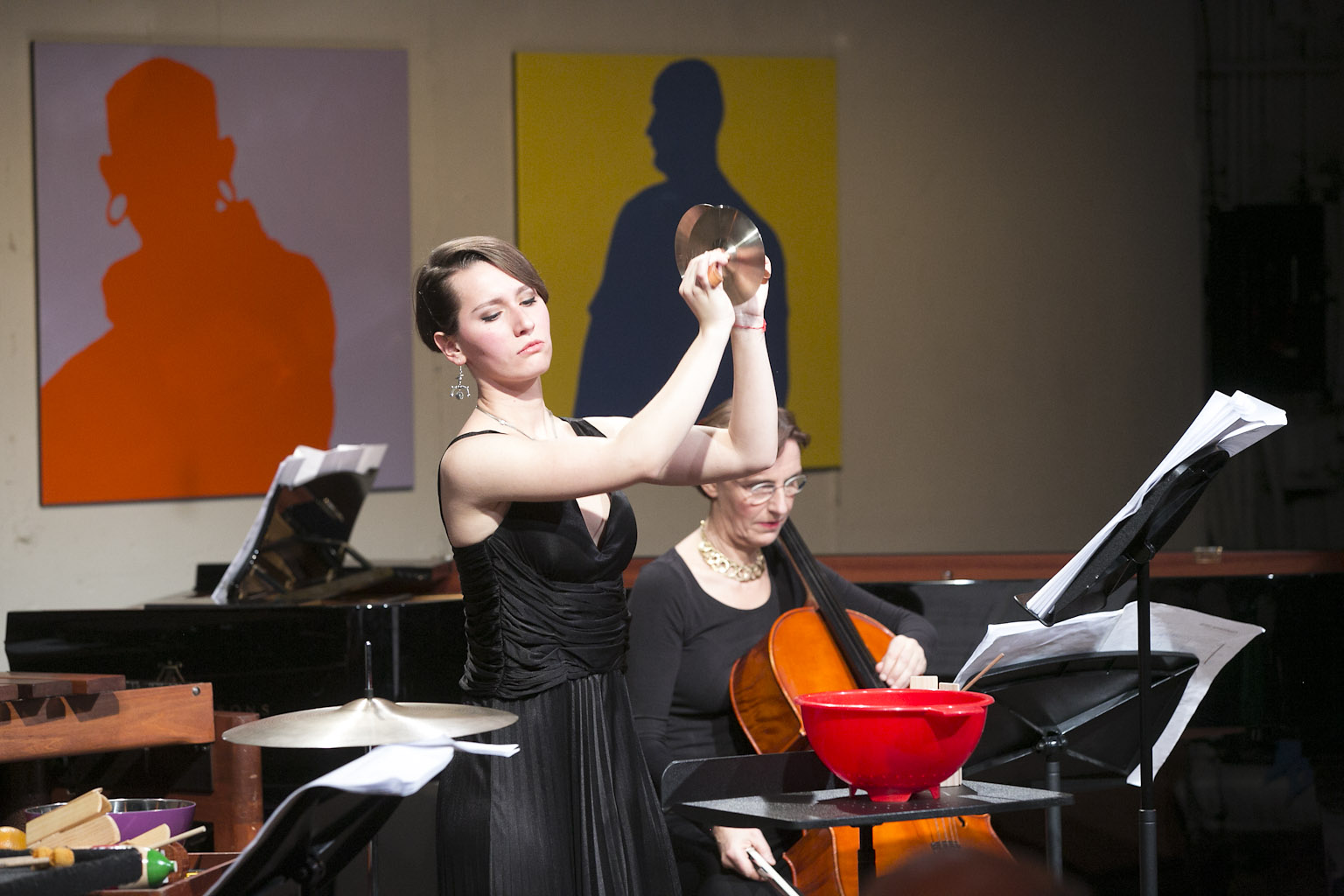
June 2018 Staatsoper unter den Linden Berlin, Neue Werkstatt: The existing scenes of the opera were expanded with the following scenes:
Prologue: Ovartaci´s Testament (Thomas Hennig)
Tender Dreams / I´m a lady (Gabriel Iranyi)
The Psychiatrist's Walk through the Klinkflur (Eres Holz)
Talking to Sinhu - Ovartaci makes art (Samuel Tramin)
The scenes of the opera in the chamber music version thus grew to the full-length format of an evening and were performed during the fourth Festival of Atonal Music at the Berlin State Opera Unter den Linden, Neue Werkstatt on 15 June 2018 in front of a full house.
Prologue: Ovartaci´s Testament (Thomas Hennig)
Tender Dreams / I´m a lady (Gabriel Iranyi)
The Psychiatrist's Walk through the Klinkflur (Eres Holz)
Talking to Sinhu - Ovartaci makes art (Samuel Tramin)
The scenes of the opera in the chamber music version thus grew to the full-length format of an evening and were performed during the fourth Festival of Atonal Music at the Berlin State Opera Unter den Linden, Neue Werkstatt on 15 June 2018 in front of a full house.
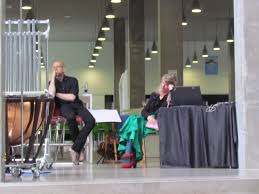
Outlook: Currently the finished scenes are being worked out by the librettist and the composers for the scenic realization. The scenes will be more strongly interconnected and endowed with more refined dramaturgical transitions; interludes will be added and the instrumentation will be rewritten for a larger ensemble.
The aim of the librettist and the composers is to have the opera in its final perfected version presented on stage in Berlin during the 2019 / 2020 season and later on in Denmark.
The aim of the librettist and the composers is to have the opera in its final perfected version presented on stage in Berlin during the 2019 / 2020 season and later on in Denmark.